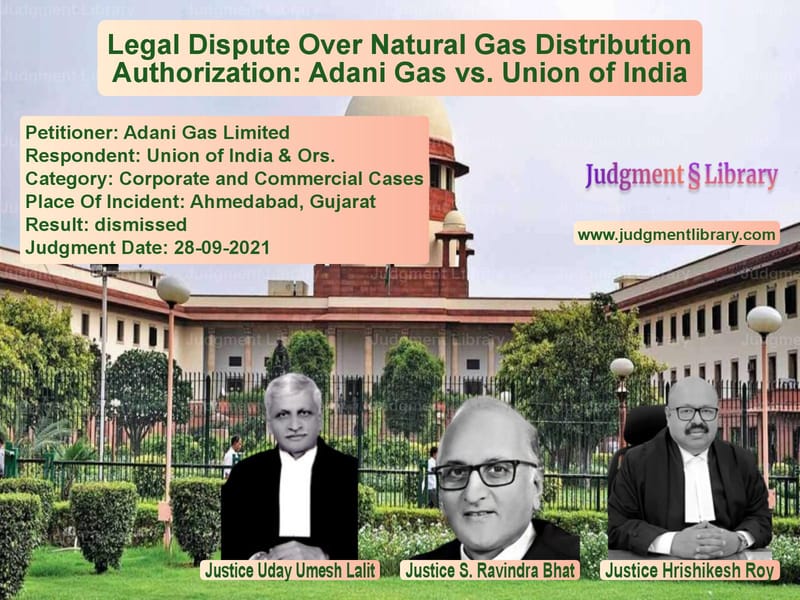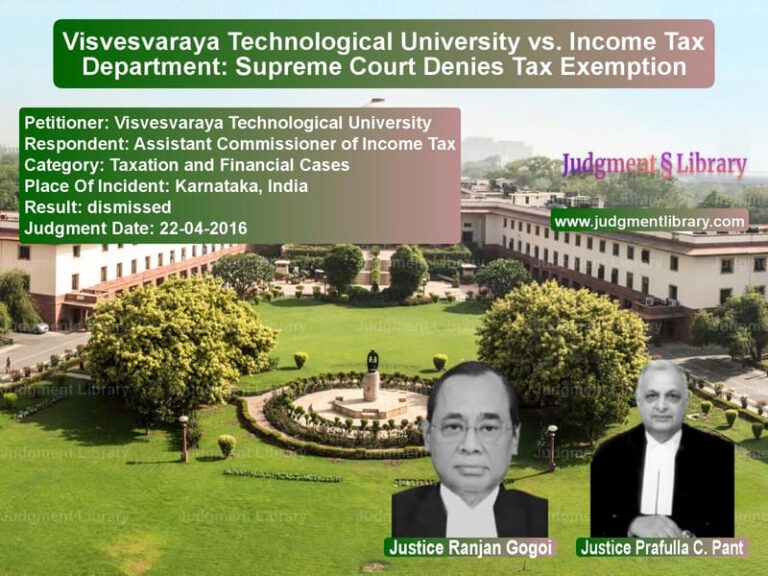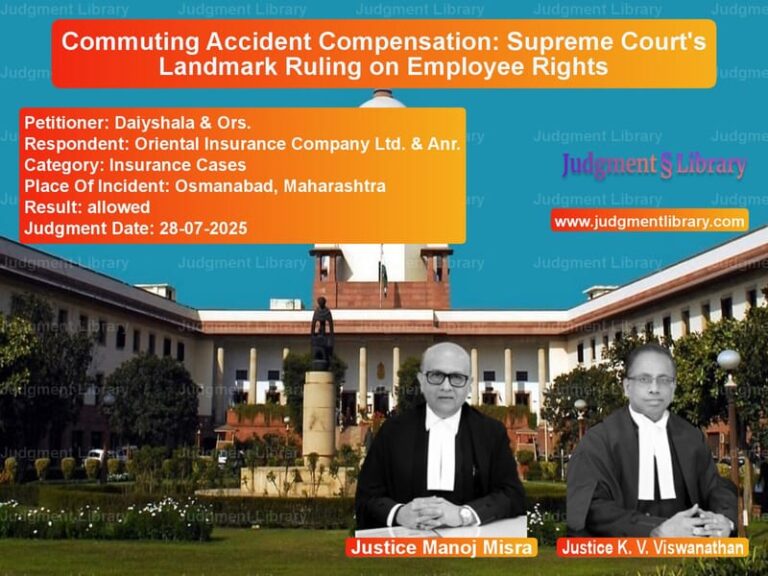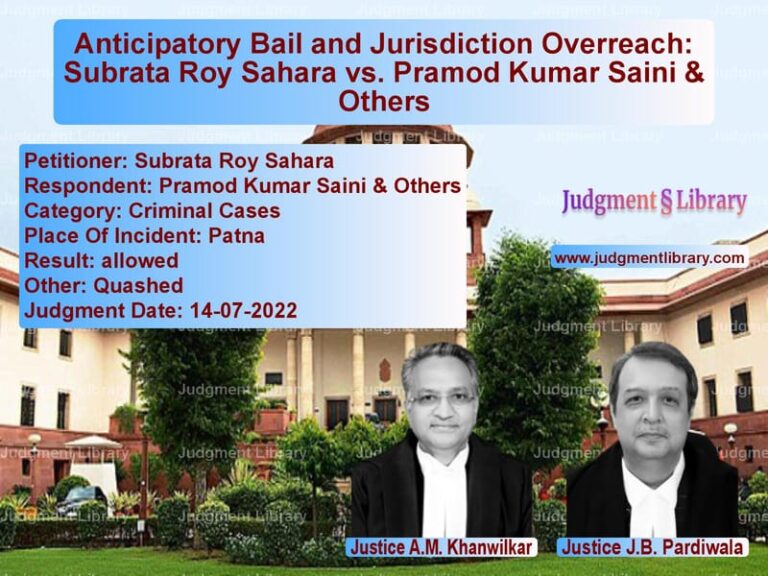Legal Dispute Over Natural Gas Distribution Authorization: Adani Gas vs. Union of India
The legal dispute in this case centers around the validity of Regulation 18 of the Petroleum and Natural Gas Regulatory Board (PNGRB) Regulations, 2008, and the authorization process for city gas distribution (CGD) networks. The Supreme Court of India was tasked with determining whether Adani Gas Limited (Adani) was entitled to deemed authorization under Section 16 of the PNGRB Act, or if it was required to undergo the formal authorization process.
The case originated from a decision by the Gujarat High Court, which rejected Adani’s plea against the exclusion of certain disputed areas from its authorization. The PNGRB had invited bids for the development of CGD networks in these disputed areas, and Gujarat Gas Limited was awarded the authorization. Adani contended that it had a legitimate claim to these areas based on prior state-level approvals and investments made in gas infrastructure.
Background and Legal Provisions
The PNGRB Act was enacted in 2006 to regulate the refining, storage, transportation, distribution, marketing, and sale of petroleum and natural gas. Section 16 of the Act mandates that no entity can lay, build, operate, or expand any city or local natural gas distribution network without obtaining authorization from the Board.
Read also: https://judgmentlibrary.com/corporate-dispute-over-shares-supreme-court-upholds-nclat-ruling/
However, the proviso to Section 16 states that entities that were engaged in such activities “immediately before the appointed date” shall be deemed to have such authorization. The crux of the dispute was whether Adani fell within this deemed authorization clause.
Arguments by Adani Gas Limited
Adani Gas argued that it had been operating in the disputed areas under state government authorization and had made significant investments in infrastructure. It contended that the deemed authorization under Section 16 applied to all entities engaged in CGD activities before the Act came into force, regardless of whether they were authorized by the central government.
Adani also challenged the validity of Regulation 18 of the PNGRB Regulations, which laid down criteria for granting authorization to entities not previously authorized by the central government. It argued that the regulation imposed arbitrary and unreasonable conditions, which effectively excluded entities like itself from securing authorization.
Arguments by the Respondents
The Union of India and PNGRB countered that the deemed authorization applied only to entities that had been explicitly authorized by the central government before the Act’s enactment. They contended that state-level authorizations had no legal standing following the Supreme Court’s ruling in Special Reference No. 1 of 2001, which held that natural gas distribution fell exclusively within the legislative competence of Parliament.
They also argued that Adani had accepted the terms of its initial authorization, which excluded the disputed areas, and had even participated in the subsequent bidding process for those areas. This, they contended, amounted to an acceptance of the PNGRB’s authority and a waiver of any claim to deemed authorization.
Supreme Court’s Ruling
The Supreme Court ruled against Adani Gas, holding that:
- The deemed authorization under Section 16 applied only to entities authorized by the central government, not those authorized by state governments.
- Regulation 18 was valid and provided a reasonable framework for considering authorization applications from entities not previously authorized by the central government.
- Adani had voluntarily accepted the terms of its authorization, including the exclusion of the disputed areas, and had participated in the bidding process for those areas.
- Adani’s challenge to the authorization process amounted to an attempt to reprobate after having already approbated, which was not permissible under the law.
Implications of the Judgment
The judgment reaffirmed the central government’s exclusive authority over natural gas distribution and upheld the regulatory framework established by the PNGRB. It also emphasized the principle that entities cannot challenge regulatory decisions after having accepted their benefits and participated in the prescribed processes.
For the industry, this ruling clarifies the legal requirements for securing CGD authorization and reinforces the importance of adhering to regulatory procedures. It also underscores the Supreme Court’s commitment to ensuring fair competition and transparency in the natural gas sector.
Conclusion
The Supreme Court’s decision in Adani Gas Limited v. Union of India serves as a significant precedent in the field of regulatory law. It establishes that deemed authorization under the PNGRB Act is limited to entities authorized by the central government and upholds the validity of the PNGRB’s regulatory framework. By rejecting Adani’s claims, the Court has reinforced the primacy of the PNGRB in overseeing the natural gas sector and ensuring that authorization processes are conducted in a transparent and fair manner.
Petitioner Name: Adani Gas Limited.Respondent Name: Union of India & Ors..Judgment By: Justice Uday Umesh Lalit, Justice S. Ravindra Bhat, Justice Hrishikesh Roy.Place Of Incident: Ahmedabad, Gujarat.Judgment Date: 28-09-2021.
Don’t miss out on the full details! Download the complete judgment in PDF format below and gain valuable insights instantly!
Download Judgment: adani-gas-limited-vs-union-of-india-&-ors-supreme-court-of-india-judgment-dated-28-09-2021.pdf
Directly Download Judgment: Directly download this Judgment
See all petitions in Company Law
See all petitions in Corporate Compliance
See all petitions in unfair trade practices
See all petitions in Judgment by Uday Umesh Lalit
See all petitions in Judgment by S Ravindra Bhat
See all petitions in Judgment by Hrishikesh Roy
See all petitions in dismissed
See all petitions in supreme court of India judgments September 2021
See all petitions in 2021 judgments
See all posts in Corporate and Commercial Cases Category
See all allowed petitions in Corporate and Commercial Cases Category
See all Dismissed petitions in Corporate and Commercial Cases Category
See all partially allowed petitions in Corporate and Commercial Cases Category







